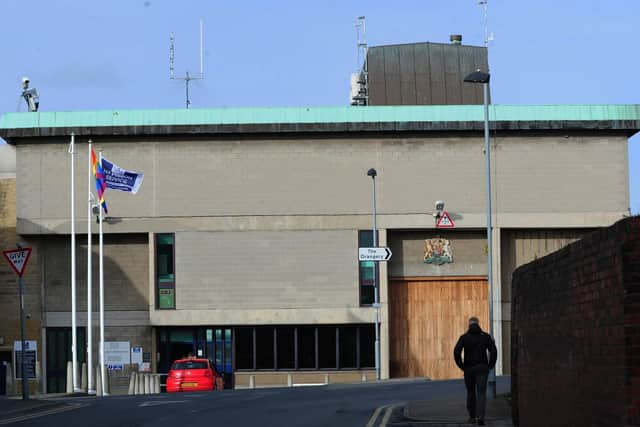Emergency ambulance delay after convicted murderer suffered fatal stroke at HMP Wakefield - investigation findings
and live on Freeview channel 276
Anthony Simpson, who was serving a life sentence for the murder of his wife, had been held at the Category A prison since July 2002.
Also in crime: Investigation after prisoner dies at HMP Leeds
Advertisement
Hide AdAdvertisement
Hide AdThe 71-year-old had a history of health conditions, including asthma, arthritis, advanced Chronic Obstructive Pulmonary Disease and suspected lung cancer, for which he had refused any assessment.


On March 8 last year, he was taken to hospital by emergency ambulance after reporting chest pains and was found to have a had a large stroke. He died in hospital four days later.
The Prisons and Probation Ombudsman, which investigates all prison deaths, found his care in the prison was equivalent to the standard he would have received in the community.
But ombudsman Sue McAllister's report said: "I am concerned that shortly after the emergency code was called, control room staff were instructed by an officer at the scene that an ambulance was not needed, meaning there was an almost five-minute delay before an ambulance was called."
Advertisement
Hide AdAdvertisement
Hide AdThe report notes that recommendations had been made in four previous investigations about staff’s failure to use the medical emergency codes.
Also in crime: Mentally ill prisoners kept waiting for transfer from women's jail near Wakefield - report findings
Ms McAllister said: "While it is unlikely that the delay affected the outcome for Mr Simpson, it is important that staff follow the correct medical emergency procedures and an ambulance is called automatically unless a member of healthcare staff instructs the control room to stand the ambulance down."
She recommended that the Governor and Head of Healthcare should ensure that all staff understand the procedures for responding to a medical emergency code.
Advertisement
Hide AdAdvertisement
Hide AdA spokeswoman for Care UK, which provides healthcare services in the prison, said: “Our clinicians supported Mr Simpson throughout his time at the prison. Healthcare staff encouraged him to engage and respected his decisions. As a result, the Prison & Probation Ombudsman found that he had received care equivalent to that he would have received in the community.
“We have worked with our colleagues in the Prison Service to learn lessons from past incidents and will continue to do so. The Coroner found that the short delay in Mr Simpson’s case did not contribute to his death."
Also in crime: Terminally ill sex offender's early release bid never submitted due to HMP Wakefield delays
She said that since taking over healthcare at the prison, the company had instituted numerous improvements including the provision of an MRI scanner and a dietician.
Advertisement
Hide AdAdvertisement
Hide Ad"We have restructured the nursing and GP model, making the care system more efficient, and the Prison Service and healthcare teams have a joint approach to the management of all complex case patients,” she said.
A Prison Service spokesman added: “While the five-minute delay in calling an ambulance was not found to have made a difference in this case, staff have been reminded how to respond to medical emergencies to ensure this does not happen in the future. Our condolences remain with his family.”